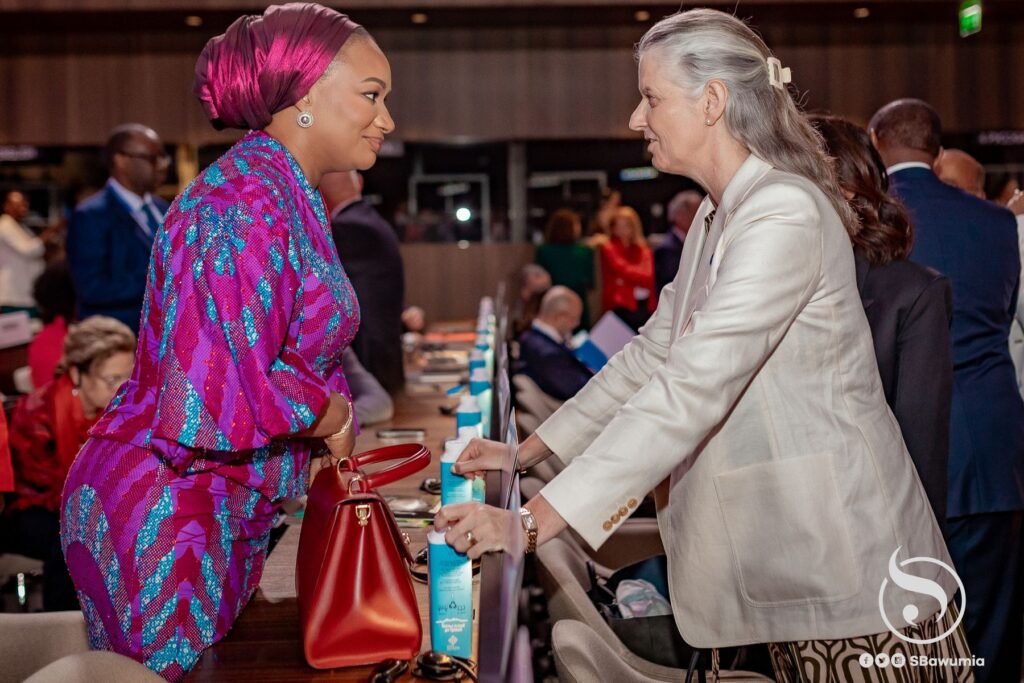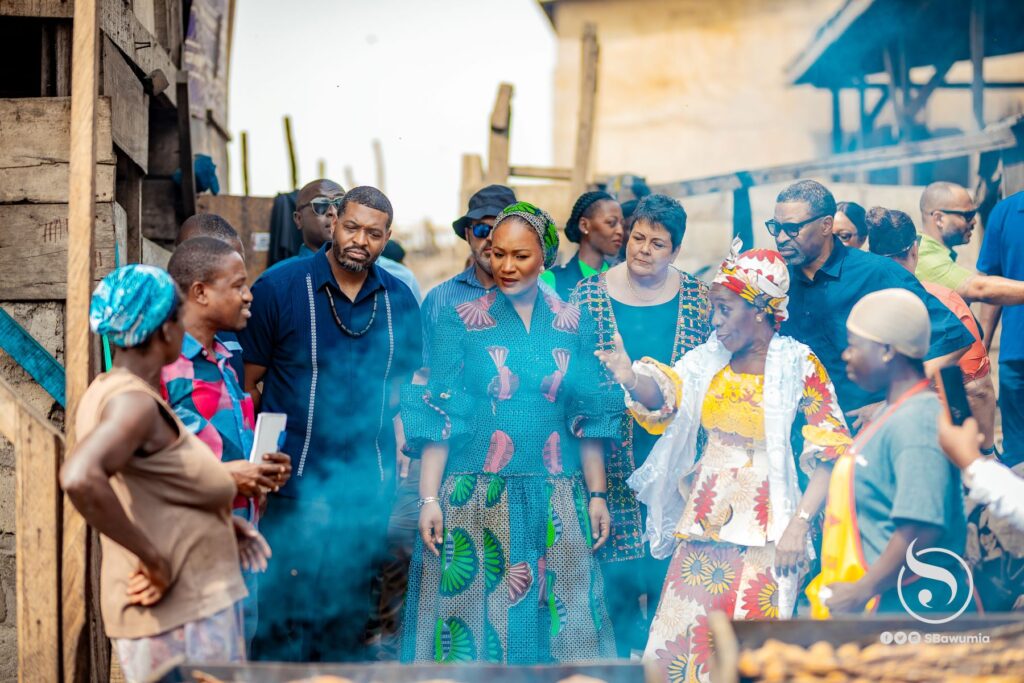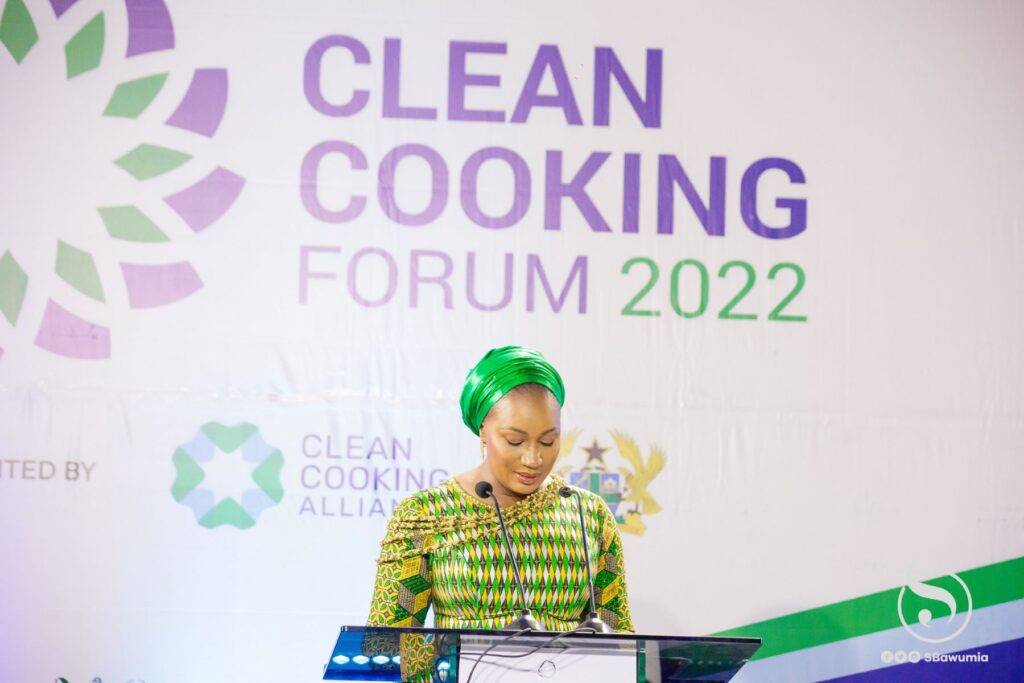H.E. Samira Bawumia: Championing Clean Cooking for Women, Children, and Africa’s Future
In this edition of the Clean Cooking Alliance (CCA) Leadership Series, CEO Dymphna van der Lans speaks with Her Excellency Samira Bawumia, Former Second Lady of Ghana and CCA Global Champion. A tireless advocate for women and children, Her Excellency has been a leading voice in the movement to accelerate access to clean cooking in Africa and beyond, working through the Samira Empowerment and Humanitarian Projects (SEHP) and the African Women and Children Conference (AFRIWOCC) to drive meaningful change.
 Summit on Clean Cooking in Africa, 2024 © SEHP
Summit on Clean Cooking in Africa, 2024 © SEHP
Dymphna van der Lans (DVL): Your Excellency, you’ve been a passionate champion for clean cooking for many years. What drew you to this issue?
Samira Bawumia (SB): My journey with clean cooking began with a simple but painful truth: millions of African women and children suffer every day from the toxic smoke of cooking with wood, charcoal, and other polluting fuels. This is not just an energy issue, it is a critical matter of health, gender equality, climate justice, and economic empowerment.
I saw firsthand how women spend hours gathering fuel and cooking in dangerous conditions, limiting their opportunities for education, entrepreneurship, and participation in public life. Children are exposed to harmful pollutants, contributing to respiratory illnesses that are entirely preventable. Clean cooking solutions can transform lives almost immediately, especially for those most marginalized. That is what motivates me. A visit to Ghana by former U.S. EPA Administrator Reagan © SEHP
A visit to Ghana by former U.S. EPA Administrator Reagan © SEHP
DVL: You’ve often spoken about the need to elevate clean cooking as a top development priority. What progress are you seeing, and where do we still need urgent action?
SB: There is momentum: more governments are recognizing clean cooking as a critical enabler of their development, climate, and health goals. In Ghana, we integrated clean cooking into our Nationally Determined Contributions and our national energy policies, with goals that include distributing 3 million improved biomass cookstoves and reaching 50% household access to cooking gas (LPG) by 2030. We also invested in technical capacity for testing stoves and fuels. With help from partners like UNDP and CCA, we established testing labs and adopted international standards. Many other African countries are investing in the solutions that make the most sense for their people. Across the continent, there is growing political will, entrepreneurial interest, and consumer demand.
But let’s be honest: funding and investment are not keeping pace with this political prioritization. Clean cooking receives less than 1% of climate and energy finance, despite offering massive returns, from cleaner air and healthier families to stronger economies and a safer planet.
We need governments to commit, donors to prioritize, and the private sector to invest, not just in stoves and fuels, but in local enterprises, women-led initiatives, and innovations that will drive long-term, systemic change.
DVL: You founded the African Women and Children Conference (AFRIWOCC) to bring visibility to these interlinked challenges. How does clean cooking fit into that vision?
SB:
AFRIWOCC was born out of the recognition that women and children are disproportionately affected by the impacts of climate change and limited energy access, yet are often left out of the discussions meant to address these challenges. Clean cooking is a perfect example of an issue where gender, climate, and health intersect.
Through AFRIWOCC, we continue to build a platform for African women to lead, to shape policy, and to demand accountability. Clean cooking is central to this process because it’s not just about air pollutants, it’s about equity and dignity. When a woman has access to clean cooking, she has more time, better health, and more choices. That’s empowerment.
 Clean Cooking Forum 2022 in Ghana © SEHP
Clean Cooking Forum 2022 in Ghana © SEHP
DVL: Today, we re-announce you as a Global Champion for the CCA. What gives you hope on this renewed mandate as you look ahead?
SB: I am honored by this renewed mandate as a Global Champion for CCA. What gives me hope is the visionary leadership of CCA and its unwavering mandate to make clean cooking a global priority. By uniting governments, private sector partners, and communities, CCA has shown that access to clean cooking is not only possible but transformative—improving health, advancing gender equality, and driving climate action. As I look ahead, I am inspired by CCA’s impact and confident that, together, we can accelerate progress toward universal access.
DVL: What message would you like to leave with our readers, especially the policymakers, donors and investors reading this?
SB: Clean cooking is not a side issue; it is foundational. If we are serious about achieving our climate goals, protecting health, and empowering women, then clean cooking must be treated as an urgent investment priority – not tomorrow, but today.
To my fellow leaders in government: embed clean cooking into your national plans, coordinate across relevant ministries, and allocate budget and resources for implementation.
To donors: scale up funding to match the need and potential. To investors: seize this opportunity to support a sector ready for growth and innovation.
And to every African woman who continues to cook over an open fire – not by choice but for lack of other options – we see you, we hear you, and we are fighting for you.
DVL: Your Excellency, thank you for your unwavering leadership and for continuing to inspire the clean cooking community worldwide.
SB: Thank you, Dymphna. It has been a privilege to walk this journey with CCA over the past six years and I look forward to continuing our work together until we’ve ensured a cleaner, healthier, more equitable future for all.
The Clean Cooking Alliance’s Leadership Series features interviews with changemakers, visionaries, and leaders from across the clean cooking ecosystem who are driving bold action toward universal access to clean cooking.
